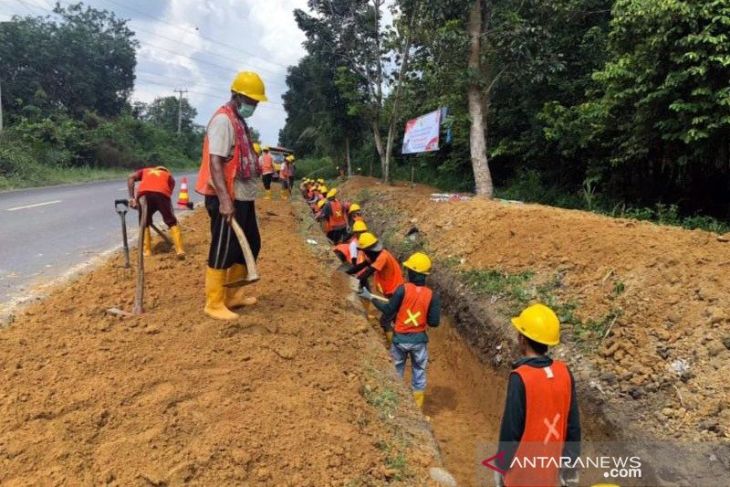
The Ministry of Public Works and Public Housing projected that labor-intensive projects worth Rp14.34 trillion (US$960.7 million) in 2023 will provide new jobs to 712 thousand workforces.
“Some Rp5 trillion (US$335 million) budget (will be disbursed for projects) in the water resources sector,” Minister Basuki Hadimuljono stated at a working meeting with the House of Representatives’ (DPR RI’s) Commission V observed by online means here, Thursday.
Labor-intensive projects in the water resources sector, including the irrigation utilization improvement acceleration programme at 10 thousand locations and maintenance of water resources infrastructures at 14 thousand locations, are expected to absorb 353 thousand workforces, he remarked.
The minister noted that labour-intensive projects in the road and bridge sector, with budget totalling Rp4.78 trillion (US$320 million), are expected to absorb 80 thousand workforces that will be assigned to road and bridge maintenance and drainage system revitalization works.
Meanwhile, the Rp2.11-trillion labour-intensive projects in the housing sector are expected to provide new jobs to 62 thousand workforces, he affirmed.
Hadimuljono revealed that future projects in the settlement sector include the development of drink water and sanitation facilities at 1,725 villages, a community-based sanitation system at 1,156 locations, and a 3R-based waste management facility at 106 locations.
The development of 1,381 sanitary facilities in religious educational institutions, socio-economic infrastructure development in 450 sub-districts, and extreme poverty alleviation in 70 locations are also among the projects of the settlement sector in 2023, he stated.
Moreover, labor-intensive projects in the housing sector, which is the Rp2.45-trillion housing stimulus assistance provision for 103 thousand housing units, are expected to provide new jobs for 217 thousand workforces, the minister remarked.
Earlier, Hadimuljono stated that labor-intensive programmes would be implemented in developments involving local residents, particularly for small-scale and simple projects, in which a particular technology is not required.
Apart from distributing funds to the village level and improving the residents’ livelihood, new jobs provided by labor-intensive projects are expected to bolster economic growth severely affected by the COVID-19 pandemic, he added.
Source from Antara News
Original News HERE
































